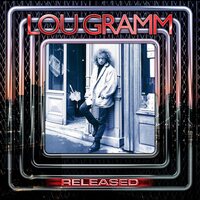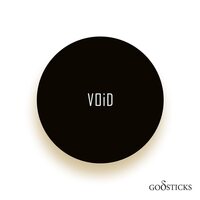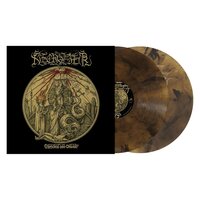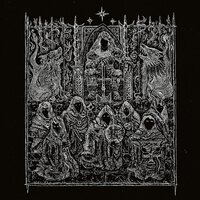Bendik Giske (NO/DE) is an artist and saxophonist whose expressive use of physicality,vulnerability and endurance have already won him much critical acclaim. You can hear allof this in his debut album Surrender, released at the start of 2019 on SmalltownSupersound, which can be described as Giske stripped to the core: no overdubs, looping,or effects. Just his body, breath, the saxophone and a resonant physical space, plus lotsof microphones.The body is important for Giske, even more so than as an acoustic musician. Not just inthe strength and muscle control required to accomplish circular breathing on thesaxophone, the unusual technique he employs to mesmerizing effect. It's also reflected inthe tradition of dance he practiced as a child in Bali - where he split his time betweenOslo with his artist parents - and enjoyed as part of an electronic music epiphany in hisadopted hometown of Berlin. And body is implied in his sense of queerness, which hashelped him create his own sound, blossoming luxuriantly not only on record but also inhis striking, embodied performances.As such, in the past Giske has likened his performance to transmuting electronic musicthrough all of his human faults, akin to becoming a machine. And with second albumCracks he introduces a new set of parameters for the automated processes of his musclememory to work against. His decision to collaborate with producer André Bratten and hisextensive studio of electronic machines saw Giske play in the new 'resonant' space ofBratten's reactive studio tuned to his original sounds.In a sense, you could call it generative music - a term coined by Brian Eno to describemusic made within a set of rules that can constantly evolve within that system. But herethe only algorithms at work are responding to Giske's self-imposed constraints (orparameters) - like the afore-mentioned circular breathing. As a practice, it induces in theplayer - and perhaps the listener, too - a kind of altered state, more open to discovery,and as a cycle of sound it defies time. This atemporality, or out-of-timeliness, hints attheorist José Muñoz's notion of "queer time", which is a chronology wholly other thanthe default.If this new studio-as-an-instrument process has brought Giske one step closer to theman-machine, it's also a way to bridge the separation - or crack - between the two. Thiskind of liminal space, according to Giske, is to be treasured: "The tracks wedgethemselves into the cracks of our perceived reality to explore them for their beauty. Acelebration of corporeal states and divergent behaviors," he explains. He cheerfullyadmits to mining the thought universe of Muñoz - especially his book Cruising Utopia- asinspiration, and the resulting Cracks have a sensual, deeply-felt and lingering beauty witha touch of the superhuman.
Release date:
August 27, 2021
Label:
Install our app to receive notifications when new upcoming releases are added.

Recommended equipment and accessories
-

Phono Preamps - Top Picks
A selection of the best phono preamps for your turntable setup
-

Pro-Ject Phono Box DC Pre-Amp
Compact, high-performance phono preamplifier for both MM and MC cartridges, delivering a clean, detailed signal with minimal noise.
-

Denon DP-400
Featuring a high-precision, belt-driven mechanism and an adjustable tonearm that ensures optimal tracking and minimal resonance
-

Nobsound Little Bear T7 Tube Preamp
Delivers rich, warm audio through its high-quality vacuum tubes, featuring multiple inputs and adjustable gain
-

Edifier R1280DB Powered Speakers
Combining classic design with modern Bluetooth connectivity, built-in amplification and versatile inputs, these speakers deliver rich, balanced sound.
Featured Upcoming Vinyl
-

Olivia Rodrigo Drivers license / Burning down the house (Translucent Red)
Geffen
April 3, 2026 -

Cut Worms Transmitter (Red)
Jagjaguwar
March 13, 2026 -

Gia Margaret Singing
Jagjaguwar
April 24, 2026 -

Broadside Nowhere, At Last (Purple Smoke With Green Splatter)
Invogue Records
April 10, 2026 -

Bosse-de-Nage Hidden Fires Burn Hottest (Neon Green) [2xLP]
Flenser
March 6, 2026 -

Lou Gramm Released (Ruby)
Friday Music Two
March 27, 2026 -

Earth Tongue Dungeon Vision
In The Red Records
February 13, 2026 -

Velocity Girl simpatico! [2xLP]
Sub Pop
February 13, 2026 -

Godsticks Void (Pearl)
Kscope Import
April 10, 2026 -

Robyn Sexistential
Young
March 27, 2026 -

Tiana Major9 November Scorpio (Translucent Red)
+1 Records
February 13, 2026 -

Necrofier Transcend into Oblivion [2xLP]
Metal Blade
February 27, 2026 -

John Hollier & the Rêverie Rainmaker
WhollyABar
March 20, 2026 -

Bizarrekult Alt Som Finnes
Season Of Mist
February 20, 2026


















